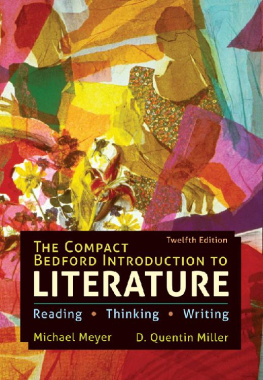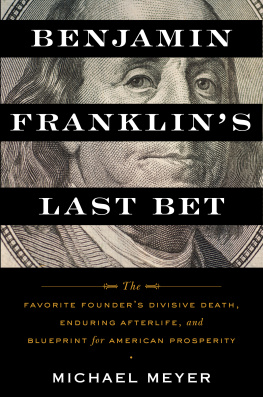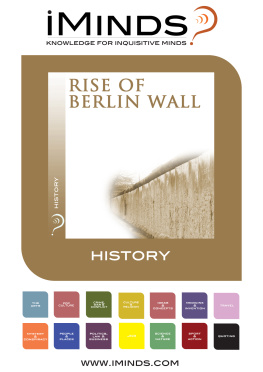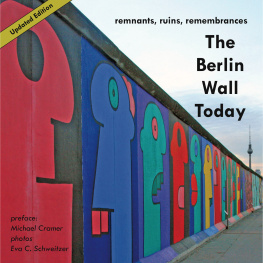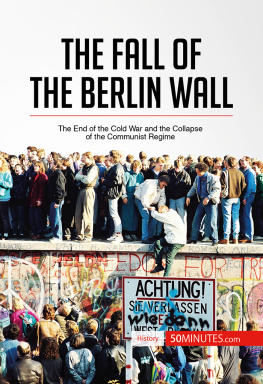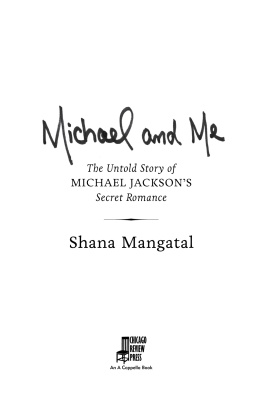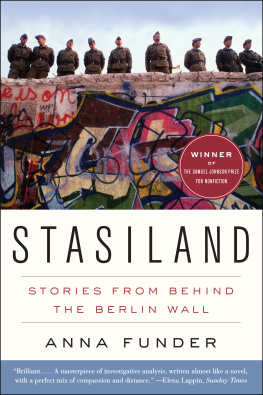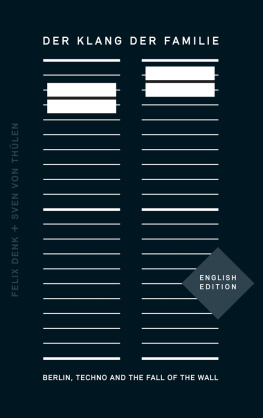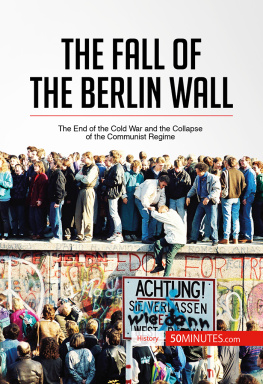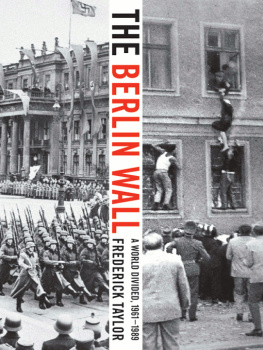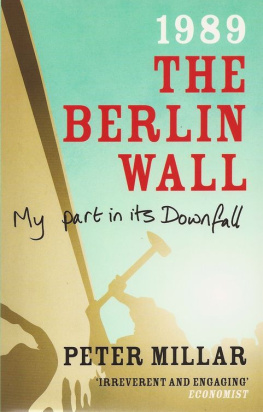Michael Meyer - The Year That Changed the World: The Untold Story behind the Fall of the Berlin Wall
Here you can read online Michael Meyer - The Year That Changed the World: The Untold Story behind the Fall of the Berlin Wall full text of the book (entire story) in english for free. Download pdf and epub, get meaning, cover and reviews about this ebook. year: 2009, publisher: Scribner, genre: History. Description of the work, (preface) as well as reviews are available. Best literature library LitArk.com created for fans of good reading and offers a wide selection of genres:
Romance novel
Science fiction
Adventure
Detective
Science
History
Home and family
Prose
Art
Politics
Computer
Non-fiction
Religion
Business
Children
Humor
Choose a favorite category and find really read worthwhile books. Enjoy immersion in the world of imagination, feel the emotions of the characters or learn something new for yourself, make an fascinating discovery.

- Book:The Year That Changed the World: The Untold Story behind the Fall of the Berlin Wall
- Author:
- Publisher:Scribner
- Genre:
- Year:2009
- Rating:5 / 5
- Favourites:Add to favourites
- Your mark:
- 100
- 1
- 2
- 3
- 4
- 5
The Year That Changed the World: The Untold Story behind the Fall of the Berlin Wall: summary, description and annotation
We offer to read an annotation, description, summary or preface (depends on what the author of the book "The Year That Changed the World: The Untold Story behind the Fall of the Berlin Wall" wrote himself). If you haven't found the necessary information about the book — write in the comments, we will try to find it.
The Year That Changed the World: The Untold Story behind the Fall of the Berlin Wall — read online for free the complete book (whole text) full work
Below is the text of the book, divided by pages. System saving the place of the last page read, allows you to conveniently read the book "The Year That Changed the World: The Untold Story behind the Fall of the Berlin Wall" online for free, without having to search again every time where you left off. Put a bookmark, and you can go to the page where you finished reading at any time.
Font size:
Interval:
Bookmark:

Also by Michael Meyer
The Alexander Complex
The Untold Story behind the Fall of the Berlin Wall
MICHAEL MEYER


SCRIBNER
A Division of Simon & Schuster, Inc.
1230 Avenue of the Americas
New York, NY 10020
www.SimonandSchuster.com
Copyright 2009 by Michael Meyer
All rights reserved, including the right to reproduce this book or portions thereof in any form whatsoever. For information, address Scribner Subsidiary Rights Department, 1230 Avenue of the Americas, New York, NY 10020.
First Scribner hardcover edition September 2009
SCRIBNER and design are registered trademarks of The Gale Group, Inc., used under license by Simon & Schuster, Inc., the publisher of this work.
For information about special discounts for bulk purchases, please contact Simon & Schuster Special Sales: 1-866-506-1949 or business@simonandschuster.com
The Simon & Schuster Speakers Bureau can bring authors to your live event. For more information or to book an event contact the Simon & Schuster Speakers Bureau at 1-866-248-3049 or visit our website at www.simonspeakers.com.
DESIGNED BY ERICH HOBBING
Manufactured in the United States of America
1 3 5 7 9 10 8 6 4 2
Library of Congress Control Number: 2008044917
ISBN 978-1-4165-5845-3
ISBN 978-1-4391-0049-3 (eBook)
To MN
and those few who dared
One fine day in early spring 1988, my phone rang.
Mike, asked our chief of correspondents. How would you like to go to Germany?
Id heard, some weeks ago, that the assignment had already gone to someone else. What happened?
Changed his mind. Decided it was too risky.
In the news business, too risky means bad for ones career. The reporter opting out concluded that Germany and Eastern Europe were too far off Americas radar screen. Not much was happening. He feared he wouldnt get into the magazine.
I couldnt believe my good fortune. For fifty years, Europe had been frozen. Now a new man was in charge: Mikhail Gorbachev. Change was afoot. You could feel it. I remember, vividly, thinking I would have perhaps a year or two to see the old Europe, a part of the continent that had been cut off behind the Iron Curtain, as if under glass, before it all went away. In my youthful enthusiasm, I considered it an almost anthropological adventure, a chance of a lifetime.
When do I leave? I asked. As soon as you can was the reply. And so, in the summer of 1988, I became Newsweeks bureau chief for Germany and Eastern Europe. It was like stepping onto a magic carpet, to be whisked away into a world of revolutionand revelationbeyond imagining.
Nineteen eighty-nine was a year of magnificent and unfathomable upheaval. Revolutions ignited across Eastern Europe, setting the stage for the collapse of the Soviet Union. I was an eyewitness to history. In Poland, I covered the renaissance of Solidarity. I was with Vaclav Havel and other friends in Prague as they engineered the Velvet Revolution. I was the last American journalist to interview Nicolae Ceausescu and have free run of his tyrannized Romania. I airlifted into Bucharest with the German Luftwaffe during the fighting that deposed him and watched his execution in the company of the secret police who did him in.
The most epochal moment of that epochal year was November 9the day the Berlin Wall came down. I watched it happen from the Eastern side of the border as the people of East Germany rose up and stormed the gates, ending four decades of communist dictatorship. I joined them as they danced atop the Wall and paraded through the streets, reveling in what was a new Berlin, the famous divided city suddenly divided no more. And like every American, I rejoiced. The Cold War was over. We won. Democracy was triumphant.
We saw this as our moment of vindication, a victory that justified all our strugglesfour decades of Cold War confrontation, trillions of dollars spent on national defense, too many lives lost in shadowy wars far across the seas. And in most ways it was. Nineteen eighty-nine was a year that changed the world. The end of the Cold War moved us from a world of division and nuclear blackmail to one of new opportunity and unprecedented prosperity. It set the stage for our modern era: globalization, the triumph of free markets, the spread of democracy. It ushered in the great global economic boom, lifting billions out of poverty around the world and firmly establishing America as the one and only superpower.
And yet it was a dangerous triumph, chiefly because we claimed it for ourselves and scarcely bothered to understand how this great change really came to pass. I sensed that we werent seeing the full story, even at the time. Today, I am sure of it. From the vantage point of two decades, and with a great deal of further research, I know now that our victory in the Cold War was not what it seemed. I have learned that it simply did not happen the way we think it did. Most painfully, the myths we spun around it have hurt the world and ourselves.
What are these myths, which we accept as truths?
First, The People. Most accounts of 1989 come down to a simple plotline: Eastern Europes long-repressed citizens, frustrated by poverty and lack of freedom and inspired by our example, rose up en masse and overthrew their communist overlords. Well, yes and no. In some countries, that is pretty much what happened. But in others, there was nothing of the sort. The most interesting (and certainly most decisive) subplot in this year of revolution was the tale of a small band of East European buccaneersa mere handful of five or six top Hungarian leaders, with little popular supportwho set out to bring down communism, not only in their own country but across the East bloc. In a conspiracy worthy of the most contrived Cold War spy thriller, they deliberately took aim at the Berlin Walland more than any others, it was they who brought it down. Theirs is the great untold story of 1989.
A second myth concerns the role of history. We Americans tend to see the end of communism as somehow foreordained. The inherent flaws of communism brought about its collapse; it could not stand up to the example of the West. This is a tectonic view, history as the interplay of great and almost inevitable forces. Seen from the ground, however, it looked very different. If you were there the night the Berlin Wall fell, you knew that it came to pass, in the way it did, because of a freak accident, a small and utterly human blunder. The iconic imagery of jubilant East Berliners celebrating atop the Wall, pounding it with sledgehammers, in reality owes as much to happenstance as to culminating history.
A third myth is most dangerous: the idea of the United States as an emancipator, a liberator of repressive regimes. This crusading brand of American triumphalism in time became gospel among neoconservatives, including many in the administration of George W. Bush. For them, the revolutions of 1989 became the foundation of a new postCold War weltanschauung: the idea that all totalitarian regimes are similarly hollow at the core and will crumble with a shove from the outside. If its symbol is the Berlin Wall, coming down as Ronald Reagan famously bid it to do in a speech in Berlin in 1987, the operational model was Nicolae Ceausescus Romania. Once the wicked witch was dead, as Francis Fukuyama, the eminent political economist, has put it, the munchkins would rise up and start singing joyously about their liberation.
Next pageFont size:
Interval:
Bookmark:
Similar books «The Year That Changed the World: The Untold Story behind the Fall of the Berlin Wall»
Look at similar books to The Year That Changed the World: The Untold Story behind the Fall of the Berlin Wall. We have selected literature similar in name and meaning in the hope of providing readers with more options to find new, interesting, not yet read works.
Discussion, reviews of the book The Year That Changed the World: The Untold Story behind the Fall of the Berlin Wall and just readers' own opinions. Leave your comments, write what you think about the work, its meaning or the main characters. Specify what exactly you liked and what you didn't like, and why you think so.

